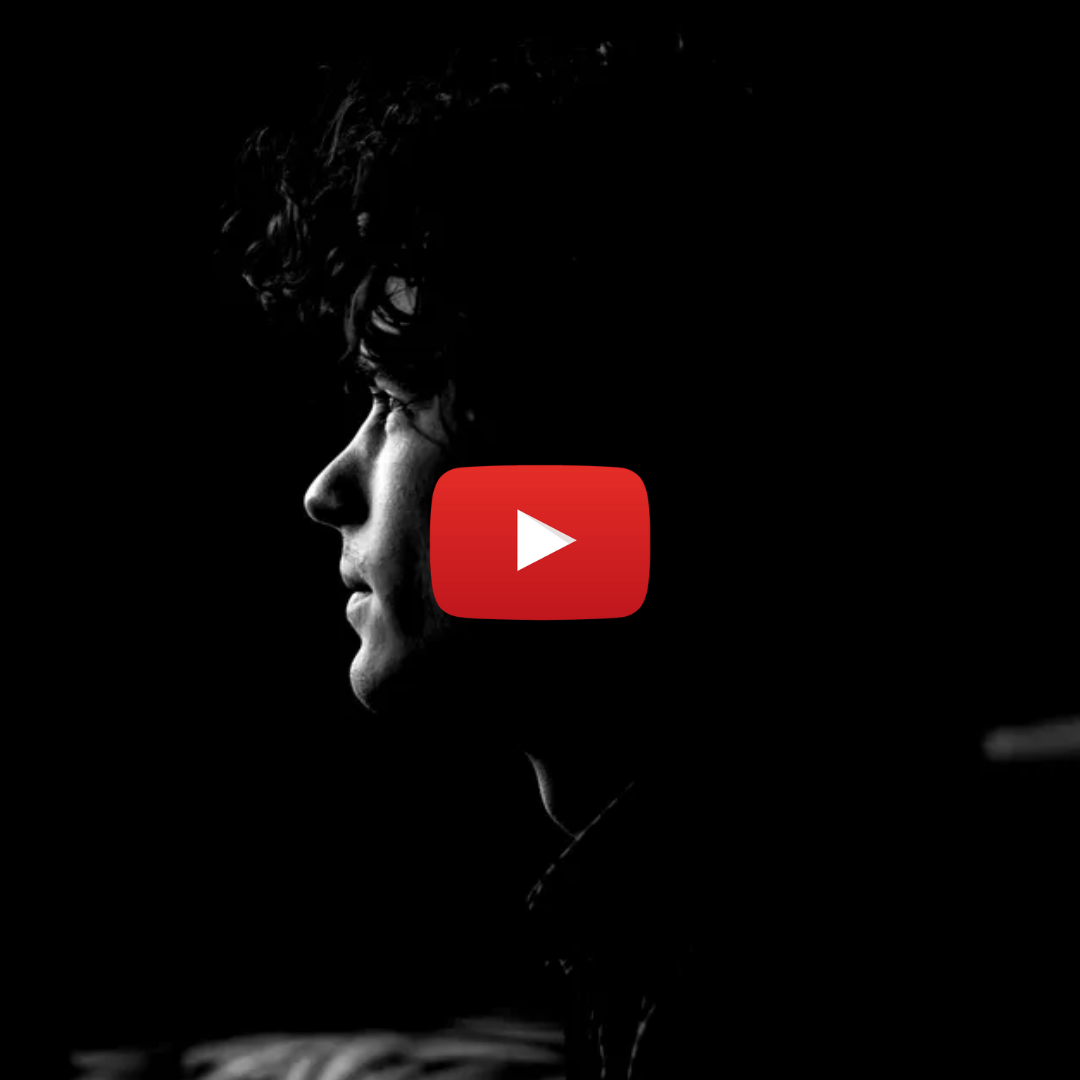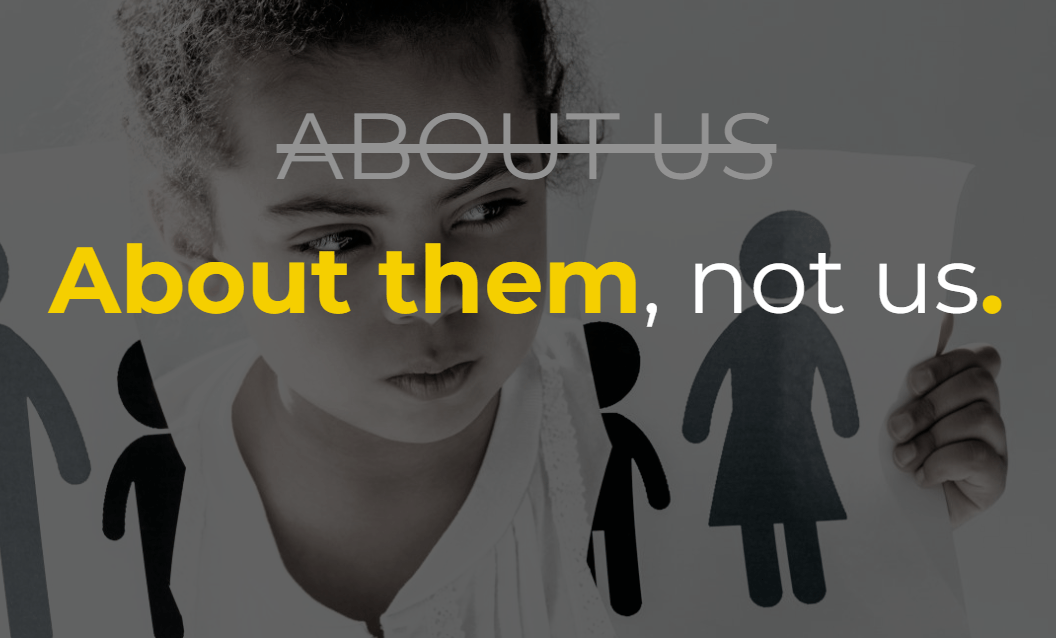We help to set things straight
It's never easy... When it comes to relationships and family.
You are faced with one of the most stressful events in your life. Everything you own and have worked so hard for - your children, your home, your career, and your retirement. Not to mention that your life is turned upside down. That's where we can help.
Let us Help You.
- Get Clarity on what you want,
- Understand the implications,
- Protect your interest...

"To my clients, I offer faithfulness, competence, diligence, and good judgment. I will strive to represent you as I would want to be represented and to be worthy of your trust."

Admitted Attorney
International Accredited Divorce Mediator
Master Neuroscience Relationship & Life Coach
- Family Law & Divorce Expert
- 27 years of experience
- Divorce Mediation
- Divorce Representation
- Parenting Plans
- Maintenance
- Sec 22 Agreements
- Cohabitation Agreements
I have a passion for helping families get through one of the most trying times in their lives because I have first-hand experience with divorce.
My goal is to offer uplift and direct you to overcome your challenges.
- Save Time & Money
- Convenient & Confidential
- Resolution Focused
- Preserving Relationships
- Family First
Keep It Simple.
- Clarity to understand your situation
- Set realistic expectations
- Consider your budget
Picking the ideal mediator or lawyer is personal.
We will put you at ease and assist you. We are here to serve you.
We put your needs first. You are always the captain of your ship.
If we represent you, we will guide you through every step of the process,
answer your questions, discuss your options, and help you understand your rights.
Begin this this chapter of your life in the best possible way with
a trusted partner to lift you up in this uncertain time.
Fast - Affordable - Divorce
Considering Divorce
Divorce involves a lot of changes and decisions, and it's natural to feel overwhelmed.
Divorce is a major life decision, so it's important to give some careful consideration to a few factors before making the leap.
Separation
A divorce is the legal dissolution or termination of a marriage, whereas a legal separation does not, but allows spouses to live separately while remaining married.
Separation means that the individuals are still legally married.
Mediation
The best long-term solution. Mediation involves the participation and agreement. You will have a VETO and have real impact on the outcome. A impartial, legally qualified, and accredited Mediator to facilitate the negotiation of an out-of-court settlement that is legally binding.
Divorce
Usually both parties get their Lawyers, and the marriage is dissolved through a formal legal process called divorce.
This becomes costly and drawn out if the parties do not negotiate in good faith. Ther are Uncontested and Contested Divorce proceedings to be followed.
Overwhelmed and Uncertain or Want to get started with Divorce - Schedule a Consult to discuss the best option for you.
About.
Respect & Compassion.
We approach every matter with trust, care, respect, and compassion to ease the psychological impact on the family and to achieve the desired positive legal outcome. We will listen without judgement. We value integrity and honesty and will always keep you updated. Read more.
OUR SERVICES.
Focus on what matters.
Our Core Principals.
- Legal assistance to Save Money.
- Guide clients to Save Time.
- Create an environment to Minimize Conflict.
- Maximize healthy family Relationships.
- Safety first to Protect Children.
- Professionalism and Confidentiality.
- Focus on Sustainable Outcomes.
What we bring.
- Experience and knowledge to help you with an integrated approach when it comes to your situation.
- We guide you - simplify the process, and will advise/assist you on every step.
- Your situation is as unique as you are and necessitates a tailored approach.
- Your best interests are our priority, and we want you to feel secure knowing that you are protected and placed in the best possible position to move forward.

Our family law attorneys have experience providing guidance on all issues pertaining to:
- Divorces (contested and uncontested)
- Guardianship applications
- Maintenance - Child Maintenance, Spousal Maintenance
- Parenting Plans
- Parental Rights and Responsibilities towards their Children
- Separation Agreements
- Urgent Applications
- Adoption
- Antenuptial Contracts
- Co-habitation Agreements
- Primary Residence, Care of and Contact with Children
- Protection Orders
- Rule 43/58 Interim Maintenance
Considering Divorce
If you are considering divorce, it is important to understand that this is a major decision that can have significant emotional and financial consequences. Before deciding about divorce, it is important to consider all your options, including seeking professional help, such as therapy or mediation, to try to resolve any issues in your marriage. It is also crucial to speak with a lawyer, who can inform you of the legal procedure and assist you in understanding your rights and obligations.
Separation
South African common law does not recognize legal separation. There is no legal status associated with it as a result. According to South African law, one can be unmarried, married, or divorced. Separation agreements cover all issues that would be covered in a divorce order. The procedure for obtaining a legal separation is the same as for obtaining a divorce. To write up separation agreements and make a separation or divorce official, you need the help of an attorney, divorce lawyers, and the courts.
Mediation
Mediation can be a less expensive and less contentious alternative to traditional divorce litigation, and it can often assist couples in reaching mutually satisfactory agreements. Divorce mediation is a process in which a neutral third party, known as a mediator, assists couples contemplating or in the process of divorcing in resolving disputes and reaching agreements on issues such as property division, child custody, and support.
Uncontested Divorces
Contested Divorce
A contested divorce occurs when the spouses are unable to agree on one or more of the issues that must be resolved, such as property division, child custody, and support. The spouses may have to go to court and have a judge make these decisions for them. Most Contested divorces are settled anyway. Divorces that are contested can be stressful, time-consuming, and expensive, as they frequently involve extensive negotiations, mediation, and, in some cases, trial.
Discovery Session
- What are your concerns.
- Discover the underlying causes.
- Be clear on your next action you can take.
- Give advice on your options going forward.
- Depending on your decision, we will schedule appropriate sessions.
Separation Session
- Set ground rules for respectful negotiation.
- Determine positions and interests.
- Discuss family dynamics.
- Considering finances.
- Establish roadblocks.
- Frame a workable plan.
Divorce Mediation
- Set ground rules for respectful negotiation.
- Determine positions and interests.
- Discuss family dynamics.
- Considering finances.
- Establish roadblocks.
- Frame a workable plan.
- Parenting Plans
Divorce Representation
- Set ground rules for respectful negotiation.
- Determine positions and interests.
- Discuss family dynamics.
- Considering finances.
- Establish roadblocks.
- Frame a workable plan.
- Parenting Plans
- Agreements
Family’s First.
Your marriage may be over, but your family is not; acting in your kids' best interest is your most important priority. The first step to being a mature, responsible co-parent is to always put your children's needs ahead of your own.
Unless your family has faced serious issues such as domestic violence or substance abuse, co-parenting—having both parents play an active role in their children's daily lives—is the best way to ensure that all your kids' needs are met and enable them to retain close relationships with both parents. The quality of the relationship between co-parents can also have a strong influence on the mental and emotional well-being of children, and the incidence of anxiety and depression. Of course, putting aside relationship issues, especially after an acrimonious split, to agreeably co-parent is sometimes easier said than done.
Successful co-parenting means that your own emotions—any anger, resentment, or hurt—must take a back seat to the needs of your children. Putting aside your strong feelings may be the hardest part of learning to work with your ex, but it may also be the most important.
It's okay to be hurt and angry, but your feelings don't have to dictate your behavior. Instead, let what's best for your kids—you working cooperatively with the other parent—motivate your actions.
Considering Divorce?
Overwhelmed by all of the decisions, emotions, and life changes that is involved.
Your situation is unique, different factors are at play when you start to consider divorce.
| "You never thought this would happen to you, let us help you."
Practical Considerations:
- Can you resolve your divorce peacefully?
- Will it be a contested or uncontested divorce?
- How can mediation help?
- If you have minor children, you will need a parenting plan
- Financial obligations and changes
- Decide your living arrangements
- Will you need a separation agreement?
- Where will your children stay?
- How will you share holidays?
- Division of assets and debts
- Maintenance to spouse and children
- Will you go to magistrate court or the high court?
- Can the mediator do your divorce?
- When do you need to get lawyers?
- When can you do a DIY divorce?
Mediation
We mediate all aspects of Family Law, such as divorce and separation, maintenance, property division, parental responsibilities and rights.
Getting a mediator to help you find common ground is one way to avoid the high costs of a contested divorce.
Divorce and Separation
Our Divorce mediators are specialists in the field of Divorce and Separation and can assist you in separating and settling all elements of your divorce or separation. We can help you to draw up a settlement agreement that can be used going forward into your divorce.
Parenting Plans
Our mediators have extensive experience in resolving disputes between parents regarding care and contact of children. We assist with a parenting plan that will suit both parties.
Maintenance
We are able to determine your maintenance needs to both spouse and children.
Affects on your children.
Divorce is a turning point in a person's life, especially for children. Their lives will never be the same again, and they will become different people as they adjust to new routines and new versions of their parents (who have also changed). They could move to a new house, go to a new school, or join a new stepfamily. A lot of the time, children blame themselves for their parents' breakup and feel guilty and sad about it. Children often feel responsible for their parents. You will need to think about the decisions you will make and how it will impact them. Try to be a civil as you can with each other.
Change in finances.
There will be a shift and change in your finances. There will be things that you will need to consider like paying maintenance to a spouse and child. You will no longer benefit from medical aid under a family plan. You might have to think about splitting your assets. You will need to re look at your retirement funds and investments. There might also be an obligation to share your pension fund. Cutting back on expenses will be a reality. Things to be changed would be your bond registrations, bank account details, your life policies, your will, and short-term insurance changes. Consider the costs of running two households.
Parent-child relationships.
Divorce has a deep and personal effect on children. The way a child feels about each parent changes over time. Sadness, confusion, fear of being left alone, guilt, anger, loyalty conflicts, worry, and grief are all painful emotions. Every child reacts to the loss in a different way. Committing to one-on-one time with each child, affirming their strengths, reinforcing positive behaviours, listening without judging, accepting their feelings, reflecting understanding, connecting words to feelings, allowing silence and giving children space to not talk. All of these help both kids and parents get to know each other better and grow closer. To strengthen the bond between parent and child, you will need to set up new family rituals and habits, build trust and confidence, share, communicate and have a deeper level of understanding towards them. What is best for your child?
Relationship with Ex-Spouse.
If you have children, you will need to communicate with each other. You will need to speak to each other, plan, and work together to solve problems relating to your children. Parents need to figure out how to get along and make choices that will not be harmful to their children. You might have to consider putting your differences aside, as it can get very hard for the children when decisions need to be made about holidays, money, time, and new spouses. We can assist with mediation to help you find the middle ground.
Division of assets.
Dividing up a household between spouses (or even if one person keeps it all) makes people feel sad, angry, and sad about their situation. You will need to think about the division of your assets, the furniture, cars, property etc.
Holidays
Parents who are no longer together will have to share the kids on holidays or take turns. Either way, that leaves one parent alone or without their kids on some of the most emotional and nostalgic days of the year. Other important days, like graduations, birthdays, and weddings, must be celebrated by both parents at the same time. This can cause tension if the exes haven't learned how to be nice to each other. You will need to consider how you are going to work this out.
Types of divorces.
Contested Divorce
Contested divorces can inflict emotional and financial trauma on all family members.
Contested divorces occur when spouses can't agree on terms. Most disputes involve child care, maintenance, and asset division. In certain circumstances, one or both spouses refuse to settle out of emotion.
In a contentious divorce, both spouses appear in court, and the judge decides their divorce. This can cause substantial legal expenses and emotional trauma and take three years or longer to resolve.
Uncontested Divorce
This alternative is quick, cheap, and reduces family stress.
In an uncontested divorce, spouses agree on terms. This involves judgments on maintenance, asset division, and child care.
Both spouses can consult and appoint an unbiased counsel to protect their interests and prepare the final settlement agreement, which is signed by both and made a court order.
Uncontested divorces take weeks to finalize.
Mediated Divorce
In this sort of divorce, couples who can't agree on a settlement hire an attorney and/or mediator to help them negotiate.
Mediators are unbiased, trained professionals who assist couples in setting aside short-term conflicts and negotiating an acceptable settlement so they may start a new future. Attorneys who give legal advice during mediation usually appoint mediators.
Once the mediator has assisted the couples in reaching an agreement, their attorney(s) can draft the official settlement agreement, which must be signed by both spouses and made a court order.
Mediation can lower divorce costs
Separation.
Separation is the mutual agreement by a husband and wife to discontinue living together.
A
legal separation
does not dissolve the marriage
contract but merely adjusts the couple's obligations under it in light of their desire to live separately. Practically, however, separation is often a prelude to divorce.
What is a Separation?
- Divorce is the legal dissolution or termination of a marriage,
- Whereas a legal separation does not put an end to the marriage but rather enables you to live separately yet still remain married.
- Separation means that you are still married in the eyes of the law.
Advantages of Separation:
- It allows you both to live separately while still being married.
- This can prevent any future arguments.
- It can also keep the relationship amicable for you and the children.
- A legal separation can protect the interests of both parties until the decision to file for divorce is made.
Some ways you could separate before proceeding with a divorce:
1.
Trial separation is when you try living separately for a while.
2.
Living apart—where you decide to live apart for an extended period of time.
3.
Permanent separation—where you split up and permanently live apart but does not make it legal.
4. Legal separations–where you decide to split up, live apart, and make it legal with a court order.
What is a Separation Agreement?
- Separation agreements cover all issues that would be covered in a final decree of divorce.
- The Separation Agreement would become valid and binding
- It is enforceable in terms of the Law of Contract.
- a Spouse could approach the Court for assistance in respect of the other Spouse’s breach.
- South African Law does not recognize the status of Legal Separation, it would recognize the Separation Agreement and give force to it.
Separation Agreements would be specific to you and include:
- Spousal Maintenance
- Parenting Plan
- Maintenance for the children
- Children's residence
- Contact time with children
- Decision-making regarding children
- Medical Aid
- School Fees
- Marital Debt
- Payment of the Home Expenses (Bond, Rates, Municipal Utility Bills, Service Provider Costs, and Upkeep of the Home)
Divorce after Separation.
- If you decide to divorce, the formal separation serves as a starting point for the divorce process.
- If this were to happen, the judge would likely decide that the settlement terms that were agreed upon at the separation should be carried over because you were happy with the separation agreement.
- It is crucial to make sure that the settlement agreement is acceptable to both parties at the time of separation.
- When getting a divorce, the separation's terms are likely to stay the same.
- Conflicts regarding settlement agreements during the separation stage may seem pointless to address if a couple still has hope of reconciling.
- One may, however, have to live with their choice for the rest of their lives if they consent to unfavourable terms during the separation period.
- However, it is possible to ask the court to create a new divorce settlement agreement if the provisions of the separation agreement proved to be unworkable during the separation time (albeit it would be a difficult procedure).
- As a result, a formal separation agreement can be used as a learning tool to determine what terms you can and cannot accept following the divorce.
Mediation.
We facilitate discussions between you and your spouse, assisting you in identifying issues, exploring areas of compromise and options in an attempt to resolve your disputes.
We mediate all areas of Family Law.
- Divorce and Separation
- Maintenance,
- Property division
- Parental responsibilities and rights.
Divorce Mediation.
- Is a negotiation method frequently used as an alternative to court-based divorce.
- Goal is to maintain relationships while finding workable solutions.
- Can assist you to agree on issues without having to approach the court.
- Creates a safe space where you can engage with one another constructively.
- Family-cantered.
- Workable solutions that keep relationships together.
- Assists you to talk to each other, and negotiate a solution that works for everyone.
- Talk and agree on short-term and long-term plans that work for everyone in the family.
- Assist in working together and continue co-parenting, which is better for divorces with children.
Advantages of Mediation.
- Speedy resolution of disputes.
- Up to 80% less costly as opposed to divorce litigation.
- Family focused.
- Assist with parenting plans.
- Emphasis is on moving forward and seeking resolution.
- Provides a win-win situation for both parties in a dispute.
- Mediation is without prejudice, what you say in mediation cannot be held against you.
- The process is flexible.
- Solution driven.
- Assists you in reaching a settlement agreement.
- Both parents are given the opportunity to clarify what they currently want and need, as opposed to blaming and criticising things that happened in the past.
- Helps limit the negative impact of divorce processes on children.
Mediation Sessions.
- Normally conducted as joint sessions with all the parties present in the same room.
- You agree to enter voluntary ( unless ordered by the court) to the mediation process.
- There are however circumstances where separate sessions may need to be conducted with the parties, but this is generally at the discretion of the Mediator and only where all the parties are in agreement with separate sessions being held with the Mediator.
- As a Mediator I remain neutral, and have no vested interest as to how the dispute may ultimately be resolved.
- I facilitate your discussions concerning the issues in dispute, helping you to avoid breakdown in communication.
- I ask questions and gently guide the process back towards possible resolution of the issues in dispute.
- Throughout the process, you are encouraged to engage in constructive conversation with one another concerning the issues and disputes at hand
- You are also encouraged to apply your minds to problem-solving attempts on how to best resolve your dispute so that a win-win outcome can be achieved.
- The best interest of the children involved must be at the core of all decisions being made.
- The final divorce agreement is lodged at the court after which a summons is served and thereafter a court date.
Attorneys at the Mediation.
- Attorneys are generally not present during the mediation, but this is often more of a cost consideration than anything else.
- Should you require your attorney to sit in on the mediation, this can be arranged if all the parties are in joint agreement with this.
What happens if mediation fails?
- You can still follow the litigation route in order to have the dispute resolved.
How can mediation help with parental rights and responsibilities?
- We can create co-operative parenting arrangements for the future.
- Attend to financial assistance for your children and you.
- Draw up a parenting plan
- Assist with the relationship between a child and a parent going forward.
- Mediation can shield and safeguard the best interest of your children.
- Mediation can also assist a family with maintenance related matters.
Is mediation legally binding in South Africa?
- The outcome of a mediation is written down in the form of a settlement agreement and is binding and enforceable.
Helping Couples Reach Amicable Solutions.
Many couples find that the best and most effective way to negotiate the issues of their separation is to work with a specially trained and impartial Family Mediator.
This person can help keep you both on track, despite your differences, strong emotions, and difficulties communicating, and can, in most cases, help you feel less stressed and anxious about these issues.
This can make a big difference in your recovering from your divorce or separation and moving on with your life.
At Divorce Specialists we assist parties in a Separation and Divorce with less conflict than they would encounter in a court atmosphere.
Uncontested Divorce.
The secret to a quick and affordable divorce is understanding the procedure.
Bad advice can lead you to end up spending more time and money than necessary.
There are two ways to proceed with a divorce, namely:
- Uncontested Divorce is a divorce where the parties have agreed on all relevant terms of the divorce.
- Contested Divorce is a divorce where the parties are unable to agree on the terms of the divorce. The Court is then asked to make a decision.
Uncontested Divorce.
Uncontested divorce is where you and your spouse work together to agree on the terms of your divorce. You discuss your differences before-hand and come to a mutually acceptable agreement.
Terms that need to be agreed on include:
- Parental rights and responsibilities of minor children;
- Maintenance for minor children;
- Division of moveable and immovable assets and property;
- Division of liabilities;
- Maintenance for either spouse;
- Division of investments, shares, and pension funds
You will both consult with the same attorney or mediator, who will be unbiased and impartial. Only one spouse will need to appear in court.
This alternative is quick, affordable, and reduces family stress.
The attorney or mediator will draught a settlement agreement that will be entered into (signed by both parties) and made an order of the court.
An uncontested divorce is without a doubt the least expensive type of divorce.
Top Uncontested Divorce questions in South Africa
How long does a uncontested divorce take in South Africa?
4 - 6 weeks. Uncontested divorce is the best and most cost-effective option for all parties concerned. It can be finalised within four weeks. If a divorce is contested, it may take between 2 and 3 years, but most contested divorces settle long before they go to trial.
How do I get an uncontested divorce in South Africa?
The legal process of an uncontested divorce in South Africa is relatively simple. Both parties will consult with the same attorney or mediator and agree on all terms prior to the divorce. Unlike a contested divorce, there is no formal trial during an uncontested divorce; only the plaintiff appears in court.
How much does an uncontested divorce cost in South Africa?
Between R800 and R20,000 in divorce and family law attorney fees and costs. An uncontested divorce can cost anything between R800 and R20 000. The cost mostly depends on the complexity of the divorce settlement agreement and the complexity surrounding the care and contact of any minor children. You can also look at our DIY divorces on our page.
Can you get divorced without going to court in South Africa?
A spouse who wishes to have their marriage dissolved must approach the High Court or the Regional Court of the Magistrate Court and have a summons issued. A court has a jurisdiction to hear a divorce matter: If the parties are domiciled (live) in the area of the jurisdiction of the court as at the date of divorce.
Can I get a divorce without my spouse knowing?
If you don't know where your spouse is, and hence cannot serve a divorce summons on him/her in person, you may divorce through a process called substituted service.
What is a Default Divorce?
- A default divorce is a form of uncontested divorce.
- A court will grant a divorce by default if summons have been served on the spouse and he or she does not respond within the allotted time period, the plaintiff can approach the court to have the matter set down for trial.
- It is however advisable to contact your spouse to find out why they are not defending the matter as they may come back at a later date to set the divorce aside on the ground that there was good excuse for missing the deadline.
Reasons for Divorce in South Africa:
Priority differences
Priorities, which many men and women discuss before marriage, can become huge concerns later.
Religion, culture, and ethnicity
Different religious, cultural, or ethnic couples may ignore each other's expectations, producing anger. Most parents wish for their children to adopt their own customs, which can cause conflict.
Family duties
Spouses rarely co-parent effectively. Differing parenting styles can cause marriage problems. One parent may be strict, while the other is lenient. Children may favour one parent over the other, producing stress and animosity in the marriage.
Finances
Marriages suffer when times are tough. Whether a couple is happy or not, they may argue about money. If they don't solve the problem, it can put extra stress on their relationship.
Incompatibility
Emotionally, psychologically, and sexually, men and women differ. Children, health issues, and occupations change as a marriage progresses. These can affect a couple's sexual relationship. If a partner is not physically fulfilled, he or she will look elsewhere. Sexual dissatisfaction usually causes divorce.
Addiction
Addiction of any kind is like a black hole, destroying everything in its path and putting undue strain on relationships. Whether the addiction be to drink, narcotics, or, increasingly, pornography or social networking, the effect is the same.
Social networking
Social media is hurting privacy and family connections more and more since it blurs the boundaries between the public and private worlds. These media venues encourage careless posting, commenting, and sharing. When spouses spend a lot of time on social networks instead of with their families, they often grow apart in a way that can't be fixed and leads to divorce.
Social media posts aren't as private as many imagine, and flirting is a leading cause of divorce. With a multiplicity of profiles just a click away, it has made it incredibly easy for folks to see if the grass is greener on the other side.
Infidelity
Infidelity, adultery, or "cheating" is a leading cause of divorce in South Africa. Adultery is purposeful and malicious extramarital sex that destroys a marriage. Infidelity damages the relationship's foundation—trust—and violates mutually established rules or boundaries.
Abuse
Abuse is one of the main reasons for divorce. Physical, verbal, emotional, psychological, and financial abuse affect all age, ethnic, and class groups. It can mean telling a child they are not wanted, calling them names, ignoring them, locking them in a room, listening in on their phone calls, or not giving them money.
Abuse can occur in heterosexual, same-sex, and parent-child relationships. Men are assaulted verbally, emotionally, and sometimes violently, just like women and children.
Misunderstanding
a Lack of communication causes 70% of divorces. Without adequate communication, no relationship can endure. Good communication doesn't require agreement. Couples with communication problems that lead to divorce generally can't compromise. A lack of communication in any area of a marriage can do major damage to the partnership. Many couples lack financial communication, leading to unnecessary complications.
Issues generally involved in divorce proceedings are:
- Division of Assets and Liabilities
- Division of investments, shares, and pension funds
- Maintenance for dependents
- Parental Rights and Responsibilities, such as: Contact; Primary Place of Residence of the Minor Children; Maintenance for the Minor Children; Guardianship and decision Making.
If you and your spouse do not come to an agreement on these issues, you will need to enter a contested divorce. Read more.
Our Services:
- Mediation (We are registered with ADR International Mediators, specializing in Divorce Mediation)
- Assessment of your situation and advise going forward
- Relationship Coaching
- Separation Agreements
- Parenting Plans
- Drafting of Settlement Agreements
- Liaising with their spouse and negotiating the terms of the divorce
- Division of Pension Benefits
- Drafting of Divorce Summons
- Approaching the Regional or High Court for your Divorce
- Applying for and obtaining a Rule 43 or Rule 58 Interim Order
- Referring a Settlement Agreement to the office of the Family Advocate
- Applying for and obtaining a Protection Orders
- Appearance at Court for the Divorce Hearing
- Variation of Divorce Orders (It is very costly to change a divorce after a court order has been made, but it is possible)
Divorce Specialists that care.
- We aim to provide you with peace of mind.
- Knowing that your divorce is being handled by an experienced divorce attorney and mediator
- We are aware of the financial strain that many people carry, and we try our utmost best to finalise each divorce as quickly as possible to avoid unnecessary high legal fees.
- We approach your case with compassion and understanding.
- We aim to avoid delay, frustration, and unnecessary costs in divorce, thereby ensuring that you achieve a quick and cost-effective resolution to your divorce.
- You have the best chance of success by working with divorce specialists who deal with every aspect of your case on a daily basis.
- From South Africa's High Courts to its Magistrates' and Children's Courts, Divorce Specialists represents clients in divorce, domestic violence, and child support cases.
- We are there to help and guide you through every step.
Contested Divorce.
If the divorce is contested and there are a range of issues in dispute, the divorce can take many months or even years to finalise.
Contested Divorce.
Contested divorces occur when you and your spouse can't agree on terms. Most disputes involve childcare, maintenance, and asset division. In certain circumstances, one or both spouses refuse to settle out of emotion.
Contested divorces can inflict emotional and financial trauma on all family members.
In a contested divorce, both you and your spouse will appear in court, and the court decide the terms of your divorce. This can cause substantial legal expenses and emotional trauma and can take years to resolve.
Issues leading to contested divorces:
- Property rights;
- Contact and Access Rights pertaining to minor children;
- Maintenance;
- Division of debts;
- Rights to pension funds;
Depending on the issues between the parties, there are many processes that may be followed and Courts that may be approached, including:
- Children’s Court
- Maintenance Court
- Domestic Violence Court
- Regional Court
- High Court
Top questions about Contested Divorces in South Africa
How long does a contested divorce take in South Africa?
It can be finalised within four weeks. If a divorce is contested, it may take between 2 and 3 years, but most contested divorces settle long before they go to trial. A civil marriage and a customary marriage need to be dissolved by a court. Note: A default divorce is similar to an uncontested or unopposed divorce.
How much does a contested divorce cost in South Africa?
South African Divorce Lawyers charge hourly rates of between R800 and R4000 per hour. Unopposed divorces are often charged at fixed prices which varies between R10 000 and R20 000. Divorce Lawyers are not allowed to work on divorce matters on a contingency fee basis.
Can a spouse refuse a divorce in South Africa?
Firstly, your spouse cannot refuse a divorce. If you wish to divorce, it is your right to do so. However, the terms of the divorce are a different matter altogether. The important thing to remember is that your husband or wife cannot refuse a divorce and in doing so effectively force you to stay married.
What is the outcome of contested divorce?
A contested divorce is just what it sounds like: one or both spouses contest (dispute) some aspect of their divorce. Therefore, the divorce proceedings take much longer to complete and typically involve greater stress and increased legal fees.
What happens if my husband contests a divorce?
If your spouse contests the divorce at first and then you reach an agreement, you can submit your agreement to the court, and the judge will decide whether the agreement is fair and issue a divorce decree. If you cannot come to an agreement, the case will go to trial. A trial can be expensive.
What happens if spouse doesn't agree to divorce?
While the divorce will still go through, it will likely extend the divorce process. If your spouse refuses to sign the divorce decree, you will have to set a hearing and present evidence to a judge so they can determine the terms of the divorce.
Our Services:
- Mediation (We are registered with ADR International Mediators, specializing in Divorce Mediation)
- Assessment of your situation and advise going forward
- Relationship Coaching
- Separation Agreements
- Parenting Plans
- Drafting of Settlement Agreements
- Liaising with their spouse and negotiating the terms of the divorce
- Division of Pension Benefits
- Drafting of Divorce Summons
- Approaching the Regional or High Court for your Divorce
- Applying for and obtaining a Rule 43 or Rule 58 Interim Order
- Referring a Settlement Agreement to the office of the Family Advocate
- Applying for and obtaining a Protection Orders
- Appearance at Court for the Divorce Hearing
- Variation of Divorce Orders (It is very costly to change a divorce after a court order has been made, but it is possible)
Divorce Specialists that care.
- We aim to provide you with peace of mind knowing that your divorce is being handled by an experienced divorce attorney and mediator.
- We are aware of the financial strain that many people carry, and we try our utmost best to finalise each divorce as quickly as possible to avoid unnecessary high legal fees.
- We approach your case with compassion and understanding.
- We aim to avoid delay, frustration, and unnecessary costs in divorce, thereby ensuring that you achieve a quick and cost-effective resolution to your divorce.
- You have the best chance of success by working with divorce specialists who deal with every aspect of your case on a daily basis.
- From South Africa's High Courts to its Magistrates' and Children's Courts, Divorce Specialists represents clients in divorce, domestic violence, and child support cases.
- We are there to help and guide you through every step.
Need Help?
Frequently Asked Questions
Separation FAQ
Mediation FAQ
Uncontested Divorce FAQ
DIY Divorce FAQ
Contested Divorce FAQ
Maintenance FAQ
CONTACT US.
We'd love to hear from you! Whether you have a question, need feedback, or just want to say hello, we're here to assist you. Please feel free to get in touch with us using the following methods:
Contact Information:
- Email: francois@pauwattorneys.co.za or info@pauwattorneys.co.za
- Phone: +27 87 183 2252 or +27 83 554 8776
- Address: 74 Kragga Kamma Rd., Sunridge Park, Port Elizabeth, 6001
Business Hours
- Monday
- -
- Tue - Fri
- -
- Saturday
- Appointment Only
- Sunday
- Closed
Connect With Us
Follow us on:
https://www.facebook.com/PauwAttorneys
https://www.instagram.com/pauw_attorneys/
to stay updated on our latest news.
We encourage you to make an appointment with Francois Pauw at Pauw Attorneys.
Your justice is our mission.
Get In Touch
Use the contact form below to send us a message.
We'll do our best to respond to your inquiry as soon as possible.










